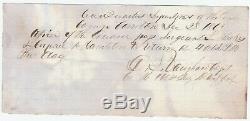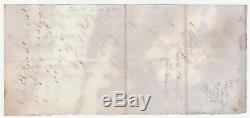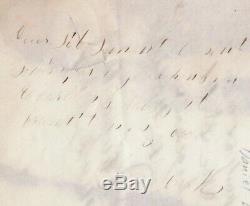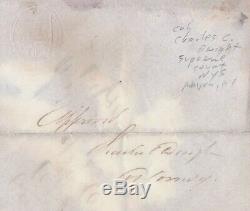
- Homepage
- Binding
- 1 / 2 Leather (2)
- 3 / 4 Leather (2)
- Brochure / Pamphlet (4)
- Cloth (87)
- Disbound (3)
- Fine Binding (52)
- Hard Back (2)
- Hard Cover (4)
- Hardback (6)
- Hardcover (893)
- Hardcover Sheepskin (2)
- Hardcover W / Jacket (5)
- Hardcovers (2)
- Leather (259)
- Original Blue Cloth (2)
- Quarter Leather (3)
- Softcover (3)
- Softcover, Wraps (42)
- ... (3553)
- Language
- Region
- Subject
- American History (7)
- Americana (79)
- Art & Photography (7)
- Bible (12)
- Children's (4)
- Civil War (60)
- Exploration & Travel (5)
- Fashion & Costumes (4)
- Figures & Portraits (19)
- Historic & Vintage (10)
- History (255)
- Illustrated (7)
- Literature & Fiction (37)
- Men, Civil War (8)
- Military (20)
- Military & Political (131)
- Military & War (644)
- New York (4)
- Reference (19)
- Science & Medicine (8)
- ... (3586)
- Topic
- American (us) (22)
- American Civil War (14)
- American History (4)
- Atlases (4)
- Bible (5)
- Christianity, Bibles (97)
- Christmas (4)
- Civil War (50)
- Civil War (1861-65) (894)
- Classics (6)
- Essays & Speeches (3)
- Grant (3)
- Historical (34)
- Literature (5)
- Military (24)
- Plantation Life (6)
- Religion (6)
- The Civil War (4)
- U.s. Grant (13)
- United States (30)
- ... (3698)
- Year Printed
RARE Civil War Pass Camp Carrollton New Orleans 160th NY Union Signed 1862






RARE Original Civil War Pass. Signed by Captain Daniel L. For offer, a rare ephemera lot! Fresh from a prominent estate in Upstate NY. Never offered on the market until now.
Vintage, Old, Original, Antique, NOT a Reproduction - Guaranteed! Headquarters, Department of the Gulf. Officer of the guard, pass Sergeant L.
Writing on back as well, one area hard to read, but another area says approved, and signed by Colonel Charles C. Dwight - who later became Supreme Court Judge from Auburn, NY State. Small puncture to lower rh corner, fold marks, light staining.
If you collect 19th century Americana history, American military, battlefield, etc. This is a treasure you will not see again! Add this to your image or paper / ephemera collection. Important genealogy research importance too.The 160th New York Volunteer Infantry was an infantry regiment in the Union Army during the American Civil War. The 160th New York Infantry was organized at Auburn, New York beginning September 6, 1862 and mustered in for three-years service on November 21, 1862 under the command of Colonel Charles C.
The regiment was attached to Sherman's Division, Department of the Gulf, to January 1863. 2nd Brigade, 1st Division, XIX Corps, Department of the Gulf, to July 1863. 3rd Brigade, 1st Division, XIX Corps, to February 1864. 2nd Brigade, 1st Division, XIX Corps, to June 1864.3rd Brigade, 1st Division, XIX Corps, Army of the Gulf, to July 1864, and Army of the Shenandoah, Middle Military Division, to February 1865. 3rd Brigade, 1st Provisional Division, Army of the Shenandoah, to April 1865. 3rd Brigade, Dwight's Division, Department of Washington, to June 1865. 3rd Brigade, Dwight's Division, Department of the South, to November 1865.
The 160th New York Infantry mustered out of service November 1, 1865. Left New York for New Orleans, La. Expedition to Bayou Teche January 1215, 1863. Aboard steamer Cotton January 14.
Operations on Bayou Plaquemine February 1228. Duty at Brashear City until March 20.Duty at Bayou Boeuf and Pattersonville until April 2. Operations in western Louisiana April 9-May 14. Second Bayou Teche Campaign April 1120. Fort Bisland, near Centreville, April 1213. Expedition to Alexandria and Simsport May 518.
Moved to Port Hudson May 1825. Siege of Port Hudson May 25-July 9. Assaults on Port Hudson May 27 and June 14. Surrender of Port Hudson July 9. Expedition to Donaldsonville July 1030.Kock's Plantation, Donaldsonville, on Bayou Fourche, July 1314. Duty near Thibodeaux and at Brashear City until September 2. Sabine Pass Expedition September 412. Moved to Algiers, then to Berwick September 17.
Western Louisiana Campaign October 3-November 30. Carrion Crow Bayou October 11.
At New Iberia until January 7, 1864. Moved to Franklin January 7, and duty there until March.
Red River Campaign March 10-May 22. Advance from Franklin to Alexandria March 1426. Battle of Sabine Cross Roads April 8. Monett's Ferry or Cane River Crossing April 23.
At Alexandria April 26-May 13. Construction of dam at Alexandria April 30-May 10. Retreat to Mansura May 1320. Avoyelle's Prairie, Mansura, May 16. Moved to Fort Monroe, Va.
Repulse of Early's attack on Washington July 1213. Pursuit of Early to Snicker's Gap, Va.
Snicker's Ferry July 20. Sheridan's Shenandoah Valley Campaign August 7-November 28. Served detached as supply train guard for the army from August 14 to October 27. Duty at Middletown and Newtown until December, and at Stephenson's Depot and Winchester until April 1865. And duty there until June.
Grand Review of the Armies May 2324. Duty there and at various points in the Department of Georgia until November. The regiment lost a total of 219 men during service; 6 officers and 53 enlisted men killed or mortally wounded, 1 officer and 159 enlisted men died of disease.
Carrollton is a historic neighborhood of Uptown New Orleans, Louisiana, USA, which includes the Carrollton Historic District, recognized by the HISTORIC DISTRICT LANDMARK COMMISSION. It is the part of Uptown New Orleans farthest upriver while still being easily accessible to the French Quarter.
It was historically a separate town, laid out in 1833 and incorporated on March 10, 1845. [2][3] Carrollton was annexed by New Orleans in 1874 (becoming the city's 16th and 17th Wards), but it has long retained some elements of distinct identity. During the American Civil War, Carrollton soon fell under Union control.Winters in his The Civil War in Louisiana (1861), reports that soldiers in Carrollton were heavy whiskey drinkers. A young officer complained that one-fifth of the regiment keeps drunk all the time. [4] Post commander General John W.
Phelps permitted the men to drink because he thought that they must have whisky or die of country fever. Butler, from time to time, issued orders forbidding the public sale of liquor. Butler's brother, Andrew J. Butler, who held no official capacity, then petitioned his brother to lift the ban. Andrew Butler monopolized the liquor trade and brought cattle into the area from Texas and flour from the North. Winters describes Andrew Butler as a jolly, fat man who could be as hard as nails where a dollar was concerned. [He] quickly established a monopoly on all groceries, breadstuffs, medicines, and staples brought into [New Orleans].He seized and operated a city bakery that was the only breadmaking establishment allowed in the city. [6] Many in New Orleans considered the Butler brothers "on the make, " and persons needing official favors were more likely to succeed if they were on good terms with Andrew Butler. The following is taken from New York in the War of the Rebellion, 3rd ed. Dwight received authority, September 6, 1862, to recruit this regiment in the then 25th Senatorial District of the State; it was organized at Auburn and mustered in the service of the United States for three years at New York city November 21, 1862.
The companies were recruited principally: A at Arcadia and Auburn; B at Palmyra, Macedon, Walworth and Owasco; C at Auburn; D at Marion, Sodus and Williamson; E at Canandaigua, Seneca Falls, Owasco, East Bloomfield, Auburn, Geneva, Tyre and Bristol; F at Auburn, Moravia, Locke, Summer Hill, Sempronius, Sennett, Owasco, Victory, Sterling and Venice; G at Attica, Alfred, Almond, Andover and Wellsville; H at Wellsville, Scio, Wirt, Auburn, Alma, West Almond and Independence; I at Caneadea, Allen, Independence, Rushford, Owasco, Auburn, Palmyra, Andover, Belfast and Wells-ville; and K at Eden, Hamburg, Marilla, Collins, Persia and Buffalo. The regiment left the State December 4, 1862; it served in Sherman's Division, Department of the Gulf, from December 25, 1862; in 2d Brigade, Augur's Division, from January, 1863; in 2d Brigade, 1st Division, 19th Corps, from February, 1863; in the Reserve Brigade, 1st Division, 19th Corps, from August, 1863; in the 3d Brigade, 1st Division, 19th Corps, from September, 1863; in 2d Brigade, 1st Division, 19th Corps, from February, 1864; in the 3d Brigade; 1st Division, 19th Corps, from June, 1864; in the 2d Brigade, 1st Division, 19th Corps, from August 13, 1864; in the 2d Brigade, 1st Division, Army of the Shenandoah, from March, 1865; in the 3d Brigade of the same, from April 6, 1865; in the 3d Brigade, Dwight's Division, at Washington, D. From April 25, 1865; in the same, Department of the South, from June, 1865; in the same, Department of Georgia, from July 23, 1865; and, commanded by Col. Underhill, it was honorably discharged and mustered out at Savannah, Ga. During its service the regiment lost by death, killed in action, 4 officers, 40 enlisted men; of wounds received in action, 2 officers, 13 enlisted men; of disease and other causes, 2 officers, 158 enlisted men; total, 8 officers, 211 enlisted men; aggregate, 219; of whom 1 officer, 7 enlisted men, died in the hands of the enemy. The following is taken from The Union army: a history of military affairs in the loyal states, 1861-65 -- records of the regiments in the Union army -- cyclopedia of battles -- memoirs of commanders and soldiers. One Hundred and Sixtieth Infantry. This regiment was recruited by Col. Dwight in the counties of Cayuga, Seneca, Wayne, Ontario, Allegany, Erie and Wyoming.It rendezvoused at Auburn, and was mustered into the U. Service at New York city Nov. 21, 1862, for three years. It left the state on Dec. 4, 1862, and proceeded to the Department of the Gulf, where it was assigned to the 2nd brigade, Augur's division, 19th corps.
Its first loss was met in the action with the gunboat Cotton in Jan. 1863, where I man was killed and 4 wounded; at Pattersonville in March, where Co. Jewett, was on board the gunboat Diana during the action with the Confederate batteries, it lost 6 killed and 16 wounded, Capt. At Fort Bisland its loss was 7 killed and wounded. It was later engaged at Jeanerette and Plain Store, after which it participated with credit in the long siege of Port Hudson, taking part in the general assaults of May 27 and June 14. Its loss in killed and wounded during the siege was 41.A period of post and garrison duty followed the fall of Port Hudson, and in March, 1864, in the 2nd brigade, 1st (Emory's) division, 19th corps, it started on Banks' Red River expedition, engaging with heavy loss at Pleasant Hill, where its casualties were 41 killed, wounded and missing, at Sabine cross-roads, Cane river crossing and Mansura. In the former action its casualties were 15 killed, 61 wounded and I missing, and in the latter 66 killed, wounded and missing.
Van Petten received a bullet through the thigh at Winchester, but continued to bravely lead his men until the battle was over. He was subsequently promoted colonel of the 193d N. The regiment left the valley in April, 1865; proceeded to Washington, where it took part in the grand review in May; moved to Savannah, Ga.
In June; and under command of Col. Underhill was mustered out at Savannah on Nov. The regiment lost by: death during its term of serviced officers and 47 enlisted men killed and died of wounds received in action; I officer and 159 enlisted men died of disease and other causes; total deaths, 219. The American Civil War (also, known by other names) was a civil war that was fought in the United States from 1861 to 1865. As a result of the long-standing controversy over slavery, war broke out in April 1861, when Confederate forces attacked Fort Sumter in South Carolina, shortly after U.President Abraham Lincoln was inaugurated. The nationalists of the Union proclaimed loyalty to the U. They faced secessionists of the Confederate States, who advocated for states' rights to expand slavery. States in February 1861, seven Southern slave states individually declared their secession from the U. To form the Confederate States of America, or the South.
The Confederacy grew to include eleven slave states. The Confederacy was never diplomatically recognized by the United States government, nor was it recognized by any foreign country (although the United Kingdom and France granted it belligerent status). The states that remained loyal to the U. (including the border states where slavery was legal) were known as the Union or the North. The Union and Confederacy quickly raised volunteer and conscription armies that fought mostly in the South over four years. The Union finally won the war when General Robert E. Lee surrendered to General Ulysses S. Grant at the Battle of Appomattox Court House, followed by a series of surrenders by Confederate generals throughout the southern states. Four years of intense combat left 620,000 to 750,000 people dead, more than the number of U. Military deaths in all other wars combined (at least until approximately the Vietnam War). [15] Much of the South's infrastructure was destroyed, especially the transportation systems, railroads, mills, and houses. The Confederacy collapsed, slavery was abolished, and 4 million slaves were freed. The Reconstruction Era (18631877) overlapped and followed the war, with the process of restoring national unity, strengthening the national government, and granting civil rights to freed slaves throughout the country. The Civil War is the most studied and written about episode in U. The item "RARE Civil War Pass Camp Carrollton New Orleans 160th NY Union Signed 1862" is in sale since Friday, December 13, 2019. This item is in the category "Collectibles\Militaria\Civil War (1861-65)\Original Period Items\Documents". The seller is "dalebooks" and is located in Rochester, New York.This item can be shipped worldwide.
- Modified Item: No
- Country/Region of Manufacture: United States

